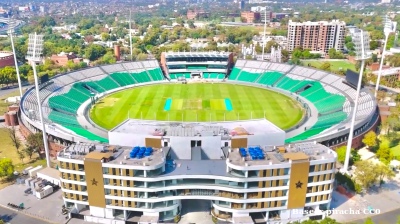Almost 100 people were killed and 171 injured in twin bombings during a memorial ceremony in Kerman, Iran, commemorating the fourth anniversary of the US killing of Qassem Suleimani, a top Iranian military commander.
The attack on January 3 was immediately labelled as "terroristic" by a senior Iranian official, Tasnim News Agency reported.
This incident comes amid heightened tensions in the region. Iraqi Iran-aligned forces have repeatedly hit US military sites in eastern Syria in recent days.
Video shared on social media showed two explosions, 10 minutes apart, near Golzar Shohada, a cemetery that houses Suleimani's grave and those of over a thousand resistance fighters. Initial confusion over the cause of the explosions was later clarified by officials who confirmed the use of remotely detonated bombs.
According to the Tasnim News Agency from Kerman, following the explosions in Kerman, some Israeli websites claimed that one of the senior commanders of the IRGC had been killed in the blast.
However, Tasnim's investigations revealed that this news is false, and none of the senior IRGC commanders were present near the explosion site.
Some Iranian officials rushed to blame Israel for the bombings, though this would be a new tactic by Tel Aviv. At Christmas an Israeli airstike killed Razi Mousavi, who Iran said was a senior adviser of the Islamic Revolutionary Guards Corps. Israel has also assassinated nuclear scientists involved in Iran’s nuclear programme.
The new bombings occurred on the roads leading to Golzar Shahada, the Garden of Martyrs, cemetery in Kerman. Suleimani’s body is buried in the cemetery along with 1,024 resistance fighters. The site is a pilgrimage destination for Iranians opposed to US and Western influence in the Middle East.
A US drone assassinated the Iranian general Suleimani —arguably the Islamic Republic’s second most powerful figure after Supreme Leader Ayatollah Ali Khamenei— four years ago to this day in a strike that threatened to trigger a regional war.
US Democratic presidential candidate Joe Biden at the time accused president Donald Trump who ordered the attack of “tossing a stick of dynamite into a tinderbox”. Fellow Democratic hopefuls in that election Elizabeth Warren and Bernie Sanders warned that the attack could spark a disastrous new war.
Sometimes referred to as the “Shadow Commander”, Suleimani was much more than a feared major-general who rose from humble origins to become Iran’s military mastermind in the Republic’s fight against the US, bne IntelliNews reported at the time of his death in a deep dive into Suleimani’s career.
Suleimani, head of Iran's elite Quds Force, was killed in a 2020 US drone strike in Baghdad. His death was a significant blow to Iran's military leadership, particularly in directing proxy forces in Iraq and Syria.



News

MOL says no risk to domestic fuel supply after Danube refinery blaze
Fires broke out at refineries in both Hungary and Romania in recent days.

Taiwan confirms first African swine fever outbreak
Authorities detected the virus on a pig farm in Wuqi District, Taichung, after 117 pigs died between October 10 and 20.

Afghanistan withdraws from Pakistan tri-nation T20 to protest murder of three local cricketers
The Afghanistan Cricket Board says it has secured clear video footage implicating the Pakistan state in an attack that killed three local cricketers.

Sanae Takaichi makes history as Japan’s first female prime minister
In her first press briefing as leader, the 64-year-old pledged to drive reform with confidence and determination, describing her administration as one “ready to decide and move forward.”




